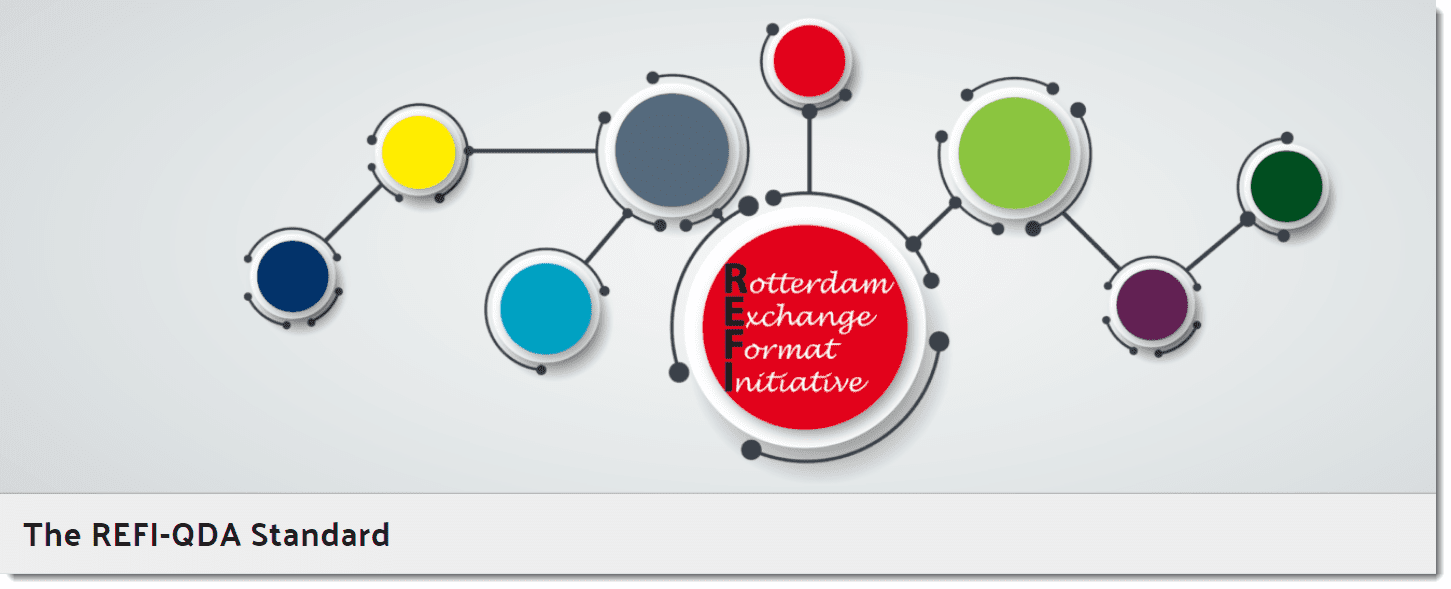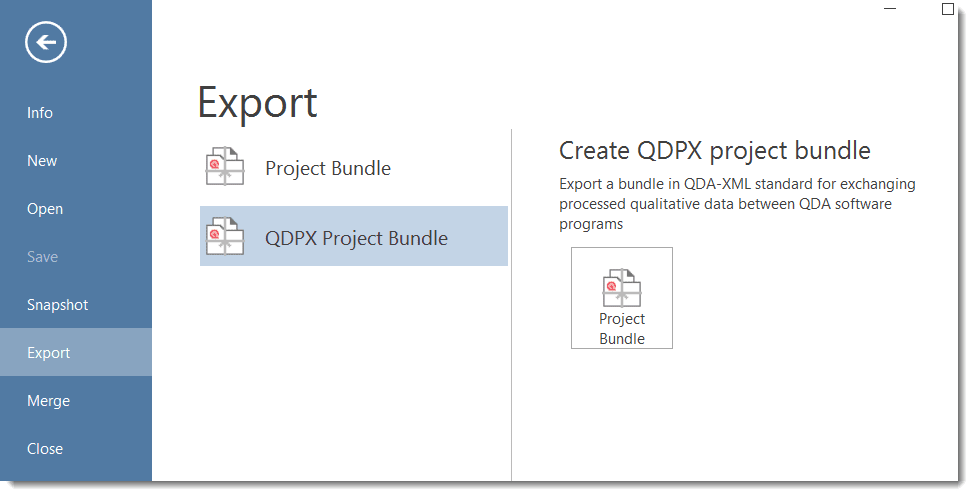QDPX - Universal Data & Project Exchange
 The QDPX data format allows for full project exchange with other CAQDAS packages. This is a major step toward a new degree of freedom in research and opens new dimensions for all practitioners of qualitative data analysis.
The QDPX data format allows for full project exchange with other CAQDAS packages. This is a major step toward a new degree of freedom in research and opens new dimensions for all practitioners of qualitative data analysis.
"We are very excited to see that - after fifteen years of ATLAS.ti being the only manufacturer to steadfastly champion universal data exchange - other software makers are now coming around to seeing the benefit of not holding users' data hostage any longer.
ATLAS.ti responded to the wishes of researchers early on by offering an open, application-independent export format for universal use. This long-standing commitment to academic openness and the free flow of ideas is now being recognized as an important value in itself.
I am convinced that being able to move projects seamlessly between different applications will be of great benefit to the research community. We are extremely proud to have been pioneers of this movement, and we are looking forward to the many advancements it will bring!" Thomas Muhr, March 18, 2019.
What is QDPX
ATLAS.ti is a founding member of the Rotterdam Exchange Format Initiative (REFI), the consortium that designs and governs the interoperability standard QDPX. At the heart of the matter, QDPX is an XML-based structured data format that permits not only long-term product storage and product-independent archival of qualitative research projects, but also aims at the exchange of projects between different software products.
ATLAS.ti has long championed the idea of universal exchange of qualitative research data between different applications and was the first manufacturer to introduce a full XML project export in their software as early as 2004. The idea of a universal data export was always a very obvious feature for us, considering the immense value that is added to data that have been processed, analyzed, and structured in the qualitative analysis process.
In the past fifteen years, we have demonstrated through many exemplary applications the additional value the data has when used and re-purposed through direct transformation into visually oriented presentations formats like web pages, printable reports, or ebooks, or other data formats like .rtf, csv, or sql. Despite the wide spectrum of these sample applications, they barely scratch the surface of what further powerful uses will still be possible in the future.
The most immediate benefit of QDPX quite obviously lies in the fact that it enables users of various QDA software products to migrate their research projects between different packages. As more manufacturer join the initiative and implement the new standard, its usefulness to researchers will doubtlessly grow exponentially.
Why is QDPX Great for You?
Find below some general arguments for QDPX and descriptions of some of its practical benefits:
- Because I don't like to be locked in a specific QDAS solution, particularly if there are problems with it; I don't want my data to be held hostage. Interoperability nudges me through the point of sale because I'm less worried that I'll be stuck in something I don't like.
- Now I can move to another software for reasons beyond my control (e.g., funding, new employer, new mandates).
- The data and coding may be the same, but I want to use different types of output/representation/visualisation that are available in one program but not another.
- I'm working on my dissertation, and I want to use software XY. My committee members, however, are more familiar with software Z. No problem. I'll just transfer my data over at a few key phases, so they can understand and comment on the database, or the output and reports. Moreover, I might be able to demonstrate why software XY was the better choice for my project.
- As a researcher who has become familiar with a particular CAQDAS package as a result of the product that is available to me through a site license at my institution, I need to be able to continue working with my research data in a different product if I move to an institution that has a different site license.
- Funding bodies increasingly look favorably on proposals that involve multiple research partners. This poses issues for users working in different institutions, who are familiar with or have access to different products. As a researcher I therefore need to be able to exchange my analysis between my product and those of my co-researchers. This will significantly facilitate collaborative research. For example, I want to collaborate with teams in three different countries; but they are all experts in a different program. In my grant proposal I want to be able to say that this is no problem and part of the reason I should be funded.
- Each QDAS package has its own particular strengths. Users often need to be able to undertake an analytic task which is not supported by their chosen product, or is enabled in a more appropriate way for their needs in another product. As a researcher being able to move to an alternative product in order to undertake a specific task would facilitate higher quality research.
Find further information on the standard, find more information here.
Exporting a Project in QDPX Format

Select File / Export and then the QDPX Project Bundle option.